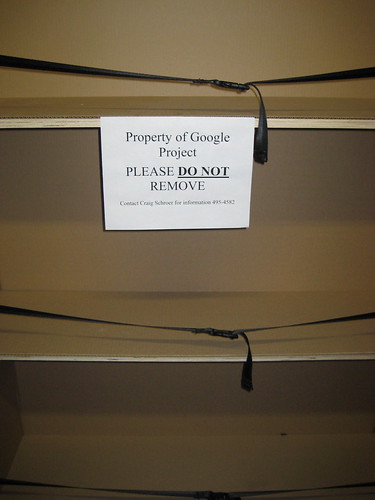 Updated 5/24/2009, Apple reverses decision, allows Eucalyptus:
Updated 5/24/2009, Apple reverses decision, allows Eucalyptus:"Then early Sunday, Apple changed its position and accepted the app after discussions with Eucalyptus developer James Montgomerie, the developer wrote on his blog:
"Earlier today I received a phone call from an Apple representative. He was very complimentary about Eucalyptus. We talked about the confusion surrounding its App Store rejections, which I am happy to say is now fully resolved. He invited me to re-build and submit a version of Eucalyptus with no filters for immediate approval, and that full version is now available on the iPhone App Store. "
Apple Says no to Project Gutenberg
"Apple has rejected Eucalyptus, an ebook reader that facilitates downloading public domain books from Project Gutenberg, because some Victorian books mention sex (many of these same books can be bought as ebooks through the iPhone Kindle reader or purchased as audiobooks from the iTunes store). It's amazing to think that in 2009 a phone manufacturer wants to dictate which literature its customers should be allowed to download and read on their devices. "
If Apple really thought about it, they would realize that there are other apps that can download Project Gutenberg books, many of which are explicit. There is a list of 1001 books you should read before you die that include many offensive and explicit books.
 Image via Wikipedia
Image via WikipediaIf a private company can do that, they can do that to ANY book. They could ban the Grapes of Wrath. This isn't considered an offensive book, but some people didn't like the way they are portrayed, so they burned the books. However in this case, people who don't agree with the book, don't have to burn it, they can delete them or destroy a program that provides access.

This leads into the Google Books Settlement controversy. If Google controls the digital versions of books scanned from public universities and have complete control of the digital copy, the same thing that's happened in the App store can happen over at google books. Google seems to be altering the settlement agreement:
Google starts charm offensive, but not everyone's on board
"...it gives Michigan the right to the digitized version of any book in its collection, even if Google wound up scanning a copy held by a different library. Michigan will have the right to offer these digital versions through the equivalent of interlibrary loans, and the general public will apparently be allowed to purchase access to its collection, even if they have no association with the university—although this may just be through the online book retailing that will be part of Google's service. "
In particular, information provided by the Federal Government have been altered or deleted since the information provided made people nervous. They also do it in an underhanded way.
Homeland Security Agents Pull Ohio Libraries’ Haz-Mat Documents
"It all began March 26, when a woman came to the reference desk and asked Martha Lee of the Bluffton (Ohio) Public Library for the Allen County Hazardous Materials Emergency Plan. Lee told American Libraries that after receiving the appropriate binder, the woman declared, “You can’t have it back.” The patron removed the materials and substituted a letter stating that the haz-mat manual would be “available for public inspection” at Allen County’s Homeland Security Office, although “proper ID may be required” to access it. According to Lee, the woman also said, “Well, I have a whole list of libraries I have to visit.”
These kinds of actions were far worse post-September 11th. So much disappeared out of fear rather than out of need. This raid had to be performed in person, getting a physical document. However, items online can be deleted just like an Itunes Store App, a Google Book, or a Government Document.
It's no wonder that when private companies are involved with books that they would encourage censorship of materials, even ones are that in the public domain. They can cite guidelines and restrictions and user agreement, but in the end private companies (nor the Federal Government) have no obligation (and certainly no incentive) to provide access to materials that some people find offensive or dangerous. What does our future for information look like if these trends continue?

No comments:
Post a Comment